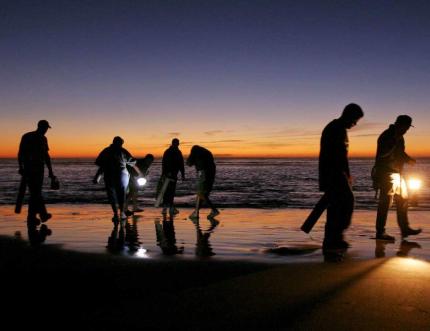ARCHIVED NEWS RELEASE
This document is provided for archival purposes only. Archived documents
do not reflect current WDFW regulations or policy and may contain factual
inaccuracies.
News release Oct. 21, 2020
Zachary Forster 360-214-0555; Jason Wettstein (360) 704-0258
OLYMPIA--After recent test results, the Washington Department of Health (DOH) has determined razor clams contain increasing levels of domoic acid. As a result, state health officials and shellfish managers closed Washington's ocean beaches to razor clam digging.

All beaches in the state are closed to razor clam digging effective immediately, including digs scheduled for Oct. 21 at Long Beach, Twin Harbors, and Copalis.
“State shellfish managers will consider openings tentatively scheduled to start October 31, depending on the results of upcoming marine toxin tests and public health officials’ ongoing monitoring of COVID-19 trends,” said Larry Phillips, WDFW’s coastal region director.
The department will make an announcement next week on additional digs.
Domoic acid, a natural toxin produced by certain types of marine algae, can be harmful or even fatal if consumed in sufficient quantities.
More information about domoic acid, as well as current levels at all ocean beaches, can be found on WDFW's domoic acid webpage.
The Washington Department of Fish and Wildlife is the primary state agency tasked with preserving, protecting and perpetuating fish and wildlife and ecosystems, while providing sustainable fishing and hunting opportunities.